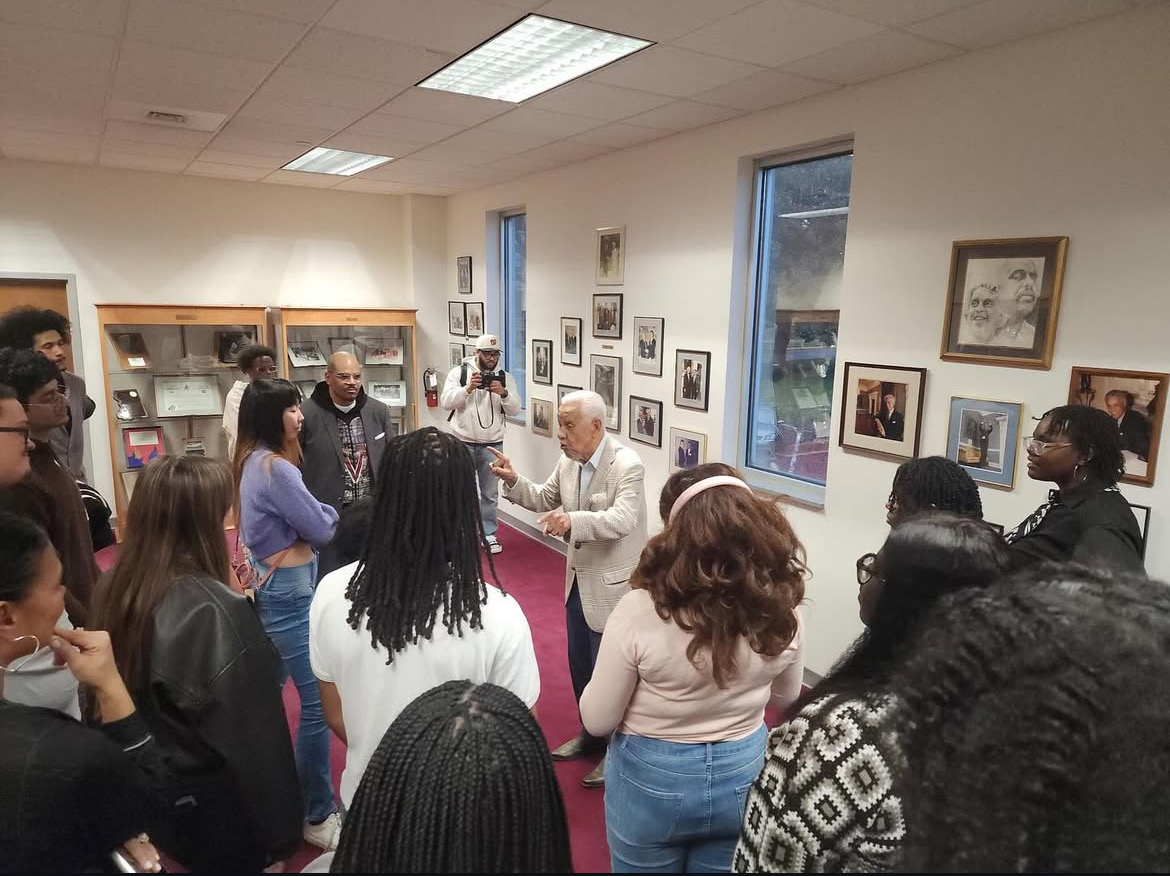As a child of Jewish Soviet immigrants, I grew up hearing stories of my family’s immense efforts to escape antisemitic oppression. My mother’s mother still remembers her family’s move across the country when she was three years old — suddenly uprooted from her home, not knowing where she was going or why — to escape Nazi occupation during World War II. She was one of the lucky ones whose family managed to leave on time. My father’s side of the family went by his grandmother’s maiden name, the only Russian name in the family, to hide their Jewish identity. When his childhood neighbor and good friend discovered that he was Jewish, he stopped talking to him. This is just the tip of the iceberg — my parents grew up with the trauma of their ancestors surviving through countless pogroms, routine, organized massacres on Jewish communities in eastern Europe. It was in large part the relative freedom from antisemitism offered by the United States that drove my parents to immigrate here in 1989.
The effects of these traumas are still with my generation today. Over spring break, my sister mentioned that she has had nightmares about being chased by Nazi soldiers during World War II, a dream that I am unfortunately all too familiar with. My parents were shocked — they thought that these nightmares had ended with their generation, but the trauma lives on.
When I was fourteen years old, I had the privilege of traveling to Israel with my father, where we stayed with some of his closest friends from high school who now live there. It was unlike anything I had ever experienced up to that point: a genuine, deep celebration of Jewish life and freedom was palpable in everything, from the food we ate to the singing and dancing that dominated the city streets each night. It felt like a breath of fresh air, and it set me on a journey to explore my own personal relationship with Judaism. I grew increasingly aware of the ways in which our strong shared values and dedication to their preservation has allowed us to maintain a cohesive identity despite having been persecuted and scattered throughout the world, and I became more conscious of my own personal responsibility to continue these practices.
When the war in Gaza began, I felt torn. On the one hand, I knew that Israel is essential to Jewish survival, that even though Jews might be relatively safe from persecution today, we may be reminded of the necessity for this safe haven at any moment. In the words of Jewish author Mark Gerson, “When Jews are persecuted, the existence of Israel guarantees us a home — a place where we are always welcome and will be protected.” Antisemitism is one of the world’s most ancient forms of oppression, and yet the Holocaust happened so recently that many of our grandparents remember it. Therefore, the existence of Israel has always been and will continue to be important.
At the same time, our safety and sovereignty as a people should not hinge on the violent destruction of another people; when it does, we are simply continuing the cycle of oppression rather than breaking it. If the true mission of Zionism is, as Gerson argues, to create a state that is governed by the principles of Jewish life, such as “care for the poor and dispossessed” and “setting an example for other nations,” the state of Israel as it is now is certainly failing to meet its purpose. Since the foundation of Israel in 1948, the Palestinian population in the region has endured displacement and exile, and the scale of this refugee crisis has reached unprecedented levels during the present conflict: 1.9 million Palestinians, or approximately 85% of the population of Gaza, has been displaced. And yet, Israel continues to bomb the Gaza strip and deprive its residents of the most basic resources needed for survival. As such, Israel is tragically failing to carry out the mission that has held our people together through millennia of persecution.
Thus, it is now more important than ever to remember what Zionism truly is: the need for a safe haven for Jews in response to a long history of oppression, a place where Jews can openly live according to our cultural and religious values without fear. Therefore, the increasingly popular framing of Zionism as a dirty word is the beginning of an alarmingly slippery slope to full-on antisemitism, the large-scale adoption of which, as history has shown, has devastating consequences. Even in the current state of affairs, I keep seeing and hearing about emblems of Jewish culture, regardless of whether they have Zionist implications, marked in ways that denounce Zionism and the state of Israel. For example, a London statue of Amy Winehouse has recently had a pro-Palestine sticker placed over her star of David necklace, a universal symbol of Jewish identity that the artist wore throughout her life. Through such incidents, it is becoming frighteningly clear that Jewish identity is becoming conflated with the unjustifiable actions of the Israeli government and army.
At the same time, for those of us who are using Zionism as an excuse for the atrocities that have been committed and continue to be committed against Palestinians, I hope that this article’s perspective on Zionism has served as a reminder that our ancestors had a completely different vision for the state of Israel. The Israeli Defense Force (IDF), whose original purpose was to defend the world’s only Jewish state, is shifting from a defensive force to a brutalizing one. Like the state of Israel itself, the IDF is crucial to Jewish safety and sovereignty, but it must continue to remind itself of its original mission and commit to doing no more (and no less) than what it set out to do.
For the sake of humanity, the current war must end with a two-state solution. Palestinians need to be allowed to safely return to their homeland, and Israeli legislature needs to be modified to more completely represent and include the Palestinian people. Simultaneously, chants such as “from the river to the sea” need to stop. Not only does such rhetoric implicitly call for the complete erasure of Israel from the map, but it is almost an exact replication of the propaganda used by Hitler’s government in its attempt to eradicate the entire European Jewish population. After the Holocaust, we vowed to never forget, and yet the world appears to be experiencing a collective amnesia regarding why the state of Israel must exist. It will not happen overnight, but with the necessary peace negotiations, paradigm shifts and societal restructuring, both Jews and Palestinians can have places to call home.










